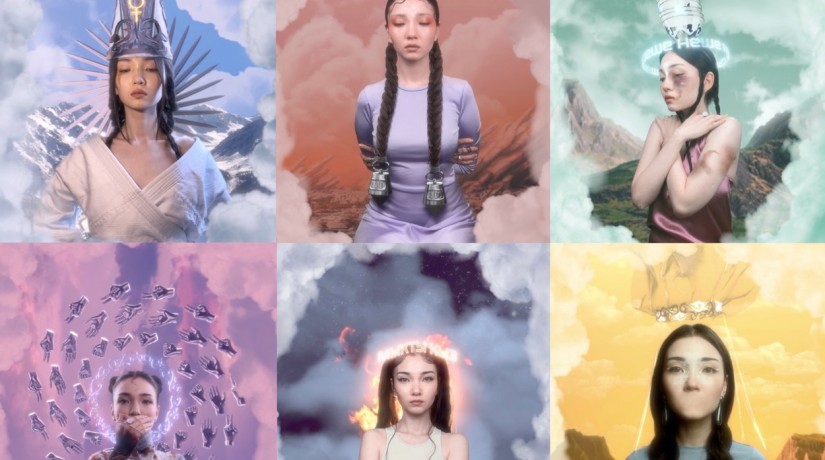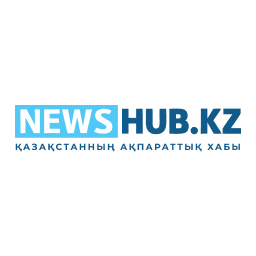В Астане вынесен приговор интернет-мошеннице
В Казахстане продолжается подготовка к паводковому периоду
Из Турции экстрадирован подозреваемый в серийном мошенничестве
Спасатели МЧС оказали помощь 13 гражданам, оказавшимся в снежном заносе
Более полумиллиарда тенге ущерба возмещено по делу в сфере образования
Artist and model Aya Shalkar's work addresses women's rights in Kazakhstan
 21 Августа 2020
21 Августа 2020
 1828
1828
 Культура
Культура
 AyaShalkar,
Kazakhstan,
women,
artist,
violence
AyaShalkar,
Kazakhstan,
women,
artist,
violence
 Фото:Photo: Aya Shalkar
Фото:Photo: Aya Shalkar
Almaty. August 21. Information Center - For a nation mired in antiquated traditions and systemic oppression, art like this should be a wake-up call, i-d.vice.com reports.
When Aya Shalkar made the decision to tackle women’s rights in Kazakhstan with her latest project, there was no such thing as COVID-19. At the time, Aya’s plan was to create a physical exhibition which would inspire conversation about the country’s very real gender-inequality issues and empower women affected by the culture of violence and oppression to speak up and be heard.
Then, in the midst of her planning, Aya along with the rest of the world was forced into quarantine and had to rethink the project and how she might communicate her message via a digital platform instead. Achieved via a steep learning curve, including figuring out how to work remotely with her collaborators, the result is a series of augmented reality videos featuring Aya herself, which are both beautiful and powerful; weirdly futuristic but also steeped in history.
With her audience of almost 800,000 Instagram followers, this is important. Domestic violence was partially decriminalised by the Kazakh government in 2017, and the statistics in the country paint a bleak picture, with hundreds of women killed each year by partners, relatively soft penalties for those convicted, and little recourse for women trapped in dangerous situations, particularly during lockdown. We spoke to Aya to find out more about her project and her hope’s for Kazakhstan’s future.
How was your own experience growing up in Kazakhstan?
I was born in Almaty, a larger, southern city in Kazakhstan. I grew up in an
ordinary, yet progressive family, spent my early childhood in the suburbs and
went to a traditional Kazakh school. Kazakhstan as a country is a flux between
indigenous Turkic heritage and Soviet socialism, shocked by the quick shift to
democratic capitalism after the collapse of the USSR. The result is something
quite unique in terms of a social landscape.
How would you describe the art you tend to make?
I’m a graphic designer, which has a big impact on how I see and make art. I
tend to think of each project as an independent universe with its own concept,
message, audience and branding. But maybe this will change! One thing’s for
sure, I will keep my futuristic approach as it’s truly a passion of mine.
Can you talk us through the thinking behind your latest
project?
The idea to create AIEL — which is the Kazakh word for ‘woman’ — came to me
about a year ago. I’ve always had a strong connection to my roots and culture
but it’s no secret that Kazakhstan’s society is quite conservative in terms of
a woman’s place within it. I’ve felt its effects over my whole life, especially
since I started expressing myself on the internet. What is interesting to me is
that the oppression of women often ends up being disguised as tradition. So I
decided to put it all into my art. My goal was to spark forbidden conversations
while trying to empower all the girls who will see the videos, by making them
question the dogma that’s being pushed upon them by society. And I think it’s
worked!
The series was made during quarantine. Do you think this had
a bearing on the work itself?
When the pandemic started, I was in despair for a couple weeks before I came up
with the idea of a video campaign format. As for the production, it was
challenging, but fun. I built an improvised green screen studio at my apartment
here in Vienna after ordering all of the equipment online. I shot the
performances by myself, on my iPhone camera and since both the VFX team and
sound designer are based in Kazakhstan, I can call AIEL a fully contactless
project. The pandemic has made us see digital art from a new perspective and I
think it’s very exciting. Many artists moved their creations into the digital
world, and sometimes it’s not only safer, but also entirely new and refreshing
to see and experience. The art world is changing and I love it.
What's been the reaction to the series?
The reaction to the project is mostly positive, with many young girls and women
expressing their gratitude for speaking up for them and exposing the hard
truth. But there has also been some backlash, mostly from men and even some
women who believe AIEL insults Kazakh traditions, which could potentially lead
to a loss of national identity. They refuse to understand that not all
traditions need to be continued, especially if they put someone’s basic rights
at stake. I believe we must constantly question the old ways and their
relevance to our times. And if that means giving up some of them, we should not
hesitate to put them onto the history shelf. There are many other beautiful
traditions that can still be practiced, and surely enough of them to preserve
our culture. Also, the stigma around feminism as a movement is very strong in
the country. You’ll often hear, “I am not a feminist, but…” and women are often
misunderstood and misinterpreted if they call themselves feminists. The whole
image of the movement is distorted and perceived as rather radical and
belonging-to-the-West. I believe things will change but it will take time.
What are you working on next?
I can’t say right now but it will come out very soon! My bigger career goal is
to pass on the excitement I feel every time an idea hits me out of nowhere.
It’s the best feeling in the world and I would love to share and spread it to
as many enthusiasts as I can, especially in my home country. I want people to
look at my art and get excited about the possibilities the future holds. To get
out of the ordinary, at least for a little.
ru МТСЗН РК опровергло фейк о ежегодном отпуске
ru В Алматы открылась юбилейная выставка о мастерах кино
ru В Астане вынесен приговор интернет-мошеннице
ru Олжас Бектенов о выделении 1 трлн тенге на посевную кампанию
ru Олжас Бектенов поручил упростить и оцифровать процедуру льготного кредитного финансирования
ru В Казахстане продолжается подготовка к паводковому периоду
ru В Алматы продолжают расширять фонд студенческих общежитий
ru Почти 3000 га сельхозземель возвращены в госсобственность в Туркестанской области
ru Марихуана в особо крупном размере изъята в ВКО
ru Олжас Бектенов провел заседание Совета директоров «Самрук-Қазына»
ru Из Турции экстрадирован подозреваемый в серийном мошенничестве
ru Спасатели МЧС оказали помощь 13 гражданам, оказавшимся в снежном заносе
ru Конституционный Суд и Офис ОБСЕ обсудили совместные инициативы на 2026
ru Дархан Сатыбалды провел встречу с инвесторами и предпринимателями Алматы
ru Более полумиллиарда тенге ущерба возмещено по делу в сфере образования
ru МВД предупредило о схеме удаленного доступа к смартфонам через вредоносные
ru Реконструкция вокзалов Жанакорган, Шиели и Казалы приближается к завершению
ru Президент США охарактеризовал Казахстан как прекрасную и богатую страну
ru Более 102 тыс. вакансий размещено на Электронной бирже труда с
ru Аграрии Жамбылской области готовятся к посевной
ru Полиция пресекла факт незаконного оборота мефедрона в Алматы
ru Международный аэропорт Семей привлечен к административной ответственности
ru В столице представили редкие рукописи VIII–XIX веков
ru Касым-Жомарт Токаев поздравил верующих с началом месяца Рамазан
ru 14,3 млрд кубометров составляет свободная емкость в водохранилищах Казахстана для
ru С начала года казахстанцам выплачено пенсий на сумму более 395
ru Канал сбыта наркотиков каннабисной группы пресечен в Жамбылской области
ru Спасатели МЧС предотвратили взрыв в жилом доме
ru Более 40% всех ПИИ — вклад Алматы
ru Деятельность незаконного онлайн-казино расследует АФМ в Мангистауской области

 +77772555856
+77772555856
 Написать нам
Написать нам












